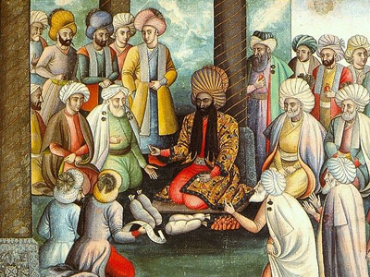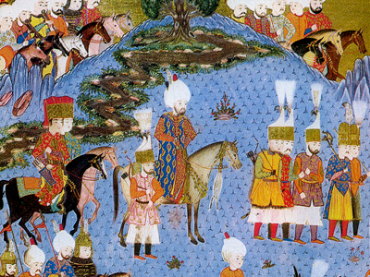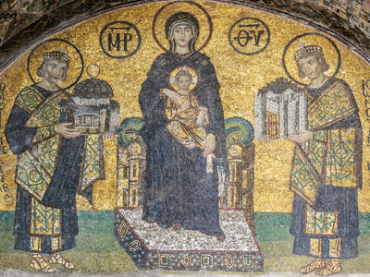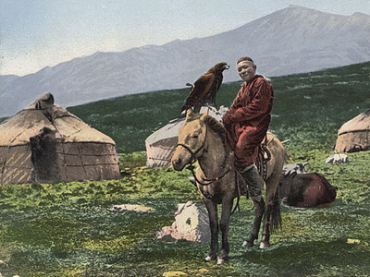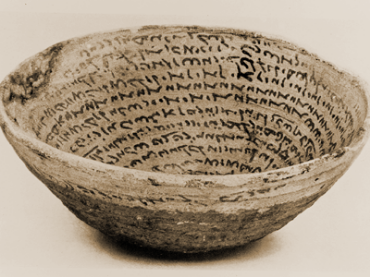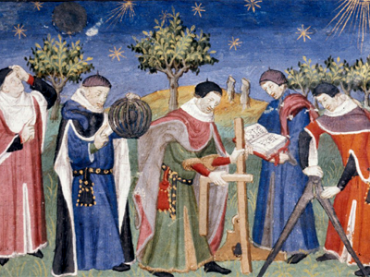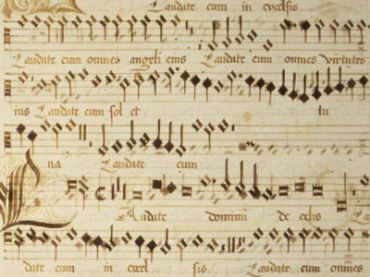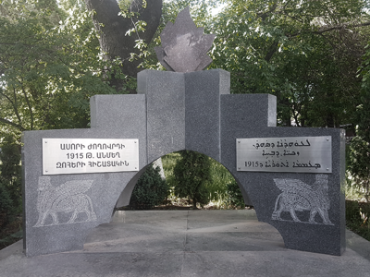History
Missionary Life in Persia
Being glimpses at a quarter of a century of labors among the Nestorian Christians
By Justin Perkins; Introduction by John Pierre Ameer
Series: Kiraz Historic Travels Archive 32
ISBN: 978-1-4632-3921-3
An account by the American missionary, Justin Perkins, of his years living among the Christians of Persia, with a new Introduction by John Ameer, setting the activities and experiences of the American missionaries in Persia in their historical context.
$78.65
Seeing Islam as Others Saw It
A Survey and Evaluation of Christian, Jewish and Zoroastrian Writings on Early Islam
Series: Gorgias Islamic Studies 12
ISBN: 978-1-4632-3926-8
This seminal work continues to shape the thought of specialists studying the Late Antique crossroads at which Christian, Jewish, Zoroastrian, and Islamic histories met, by offering the field a new approach to the vexing question of how to write the early history of Islam. The new edition of the study produces the original text with the addition of a substantial forward in which Hoyland discusses how the field has developed over the two decades that proceeded the book’s first publication. Hoyland also shares some personal reflections on how his thinking has since developed and the potential impact of this on the findings of the original study. The book also includes new appendices that detail the later publications of the author.
$114.95
He Did Not Fear
Xusro Parviz, King of Kings of the Sasanian Empire
ISBN: 978-1-4632-3927-5
He Did Not Fear: Xusro Parviz, King of Kings of the Sasanian Empire spotlights Xusro II, the man who almost conquered the Roman Empire in the Roman-Sasanian War of the Seventh Century CE, and examines his historical prominence.
$114.95
Women in Islamic Biographical Collections
From Ibn Sa'd to Who's Who
By Ruth Roded
Series: Gorgias Islamic Studies 11
ISBN: 978-1-4632-3930-5
Women in Islamic Biographical Collections: From Ibn Sa'd to Who's Who is a groundbreaking study of 40 bibliographical collections, dating from the 9th century to the present, investigating which type of woman Muslim scholars have deemed worthy of recording for posterity. The analysis clearly indicates that Muslim women have achieved prominence in certain fields at certain times.
$114.95
Fâṭima, Daughter of Muhammad (second edition - hardback)
Second Edition
Series: Islamic History and Thought 10
ISBN: 978-1-4632-3933-6
The only child of Muhammad to survive him, Fâṭima was from early times taken up by Shî’a Islam, for whose adherents she is the virgin mother, the heavenly intercessor with untold power before God’s throne, and the grieving mother of al-Husayn, the Shî’a's most important martyr. During her life she was impoverished and weak, neglected, marginalized, and divested of justice: but her reward in heaven comprises incalculable riches, all those in heaven will bow their heads to her, and her company will be the angels and the friends of God. Here, for the first time, her story is told.
$95.00
Half of my Heart
The Narratives of Zaynab, Daughter of ʿAlî
Series: Islamic History and Thought 13
ISBN: 978-1-4632-3937-4
As Abû ʿAbd Allâh al-Ḥusayn, son of ʿAlî and Fâṭima and grandson of Muḥammad, moved inexorably towards death on the field of Karbalâʾ, his sister Zaynab was drawn ever closer to the centre of the family of Muḥammad, the ‘people of the house’ (ahl al-bayt). There she would remain for a few historic days, challenging the wickedness of the Islamic leadership, defending the actions of her brother, initiating the commemorative rituals, protecting and nurturing the new Imâm, al-Ḥusayn’s son ʿAlî b. al-Ḥusayn b. ʿAlî b. Abî Ṭâlib, until he could take his rightful place. This is her story.
$114.95
Fâṭima, Daughter of Muhammad (second edition - paperback)
Second Edition
Series: Islamic History and Thought 10
ISBN: 978-1-4632-3939-8
The only child of Muhammad to survive him, Fâṭima was from early times taken up by Shî’a Islam, for whose adherents she is the virgin mother, the heavenly intercessor with untold power before God’s throne, and the grieving mother of al-Husayn, the Shi’a's most important martyr. During her life she was impoverished and weak, neglected, marginalized, and divested of justice: but her reward in heaven comprises incalculable riches, all those in heaven will bow their heads to her, and her company will be the angels and the friends of God. Here, for the first time, her story is told.
$65.00
Historiography and Hierotopy
Palestinian Hagiography in the Sixth Century A.D.
By Rod Stearn
ISBN: 978-1-4632-3981-7
Judean hagiographies are unusual. Some are unexpectedly structured: a saint’s life in the form of a history text. Others offer surprising content. Expected hagiographic stylizations, for example, often depict moments in which the saint is offered money for a miracle. In such cases the saint invariably refuses. Judean saints, however, accept gratitude willingly – often with cash amounts recorded. The peculiarities of these works have regularly been examined on literary and theological grounds. The monasteries that produced these texts were utterly dominated by the environment of Christian Jerusalem. Although often commented upon, the unmined implications of this reality hold the key to understanding these hagiographies. It is only by examining these monasteries’ ties to – and embeddedness within – their peculiar context that we can perceive the mindset that produced such baffling texts.
$114.95 $91.96
From Albania to Arrān
The East Caucasus between the Ancient and Islamic Worlds (ca. 330 BCE–1000 CE)
Edited by Robert Hoyland
ISBN: 978-1-4632-3988-6
The first ever study in English dedicated to Albania in Late Antiquity to the Medieval period.
$114.95
The Chronicle of Michael the Great (The Edessa-Aleppo Syriac Codex)
Books XV–XXI. From the Year 1050 to 1195 AD
Edited and Translated by Amir Harrak
Series: Gorgias Chronicles of Late Antiquity 3
ISBN: 978-1-4632-4031-8
Michael the Great was elected patriarch of the Syriac Orthodox church in a most instable period. He nevertheless, found time, clarity of mind, and determination to write a voluminous world chronicle, which he completed four years before he died in November 7, 1199. The present edition and its translation begin with Book XV and end with Book XXI, the last Book in the Chronicle, thereby covering more than 160 years, from AD 1031 to AD 1195.
$215.00
The Syriac Orthodox in North America (1895–1995)
A Short History
Series: Gorgias Handbooks 42
ISBN: 978-1-4632-4037-0
A short history of the Syriac Orthodox community in North America between 1895, the year of the First Sayfo that triggered the first wave of immigration to North America, and 1995, marking the passing away of Metropolitan Mor Athanasius Yeshue Samuel, the first and only Archbishop of the Syriac Orthodox Archdiocese of the United States and Canada.
$42.00
Gender in Jewish Studies
Proceedings of the Sherman Conversations 2017
Edited by Katja Stuerzenhofecker & Renate Smithuis
ISBN: 978-1-4632-4056-1
Volume 13 of Melilah, an interdisciplinary electronic journal concerned with Jewish law, history, literature, religion, culture and thought in the ancient, medieval and modern eras.
$69.00
The Syriac Dot (paperback)
A Short History
ISBN: 978-1-4632-4100-1
The dot is used for everything in Syriac from tense to gender, number, and pronunciation, and unsurprisingly represents one of the biggest obstacles to learning the language. Using inscriptions, early grammars, and experiments with modern scribes, Dr. Kiraz peels back the evolution of the dot layer by layer to explain each of its uses in detail and to show how it adopted the wide range of uses it has today.
$52.00
Ottoman Architecture
A Study Published for the 1873 Vienna World’s Fair
Series: The Modern Muslim World 16
ISBN: 978-1-4632-4170-4
Ottoman Architecture is the first modern history of Ottoman architecture written by Ottomans themselves, yet it is little known outside the field of late Ottoman studies. This magnificently-illustrated volume codifies the empire’s architectural history into a series of preliminary stages culminating in the efflorescence of the Ottoman classical tradition in the sixteenth-century.
$131.00 $104.80
Meccan Trade and the Rise of Islam (paperback)
Series: Gorgias Islamic Studies 6
ISBN: 978-1-4632-4172-8
The late Patricia Crone reassesses one of the most widely accepted dogmas in contemporary accounts of the beginnings of Islam: the supposition that Mecca was a trading center. In addition, she seeks to elucidate sources on which we should reconstruct our picture of the birth of the new religion in Arabia.
$74.00
Middle Eastern Encounters
Collected Essays on Visual, Material, and Textual Interactions between the Eighth and the Twenty-first Centuries
Series: Islamic History and Thought 21
ISBN: 978-1-4632-4193-3
This book focuses on interactions between the Islamic world and other regions from the late eighth to the twenty-first centuries. Some chapters consider the complex relationship between Islam and the cultures of Late Antiquity in the Middle East and Mediterranean basin. The reprinted chapters in this volume have been revised and updated. Topics include relief-moulded pottery production in Raqqa, the construction of palaces in Samarra, portraiture in Arabic manuscript painting, written descriptions of patterned marble in medieval Islam, images of Muslim rulers in early Modern printed books, and the broadcast of the medical examination of Saddam Hussein. Also included are a critical introduction that considers the challenges involved in the study of cultural interactions between Islamic and non-Islamic regions, a cumulative bibliography, and a previously unpublished study of recently discovered photographs, drawings, and writings relating to the Middle East made by soldiers during and after World War I.
$177.00
Half of my Heart (paperback)
The Narratives of Zaynab, Daughter of ʿAlî
Series: Islamic History and Thought 13
ISBN: 978-1-4632-4236-7
As Abû ʿAbd Allâh al-Ḥusayn, son of ʿAlî and Fâṭima and grandson of Muḥammad, moved inexorably towards death on the field of Karbalâʾ, his sister Zaynab was drawn ever closer to the centre of the family of Muḥammad, the ‘people of the house’ (ahl al-bayt). There she would remain for a few historic days, challenging the wickedness of the Islamic leadership, defending the actions of her brother, initiating the commemorative rituals, protecting and nurturing the new Imâm, al-Ḥusayn’s son ʿAlî b. al-Ḥusayn b. ʿAlî b. Abî Ṭâlib, until he could take his rightful place. This is her story.
$58.00 $46.40
La Şaḥīfa de Médine (VIIe siècle)
Une relecture critique
Series: Islamic History and Thought 25
ISBN: 978-1-4632-4268-8
The Ṣaḥīfa of Medina is preserved thanks to two 9th century historiographers: Ibn Hishām and Abū ‘Ubayd. It clearly illustrates, through variants present in both the text and its chain of transmission, the challenges posed by sources that reach us by way of oral tradition. The present study sheds fresh light on the text of one of Islam’s most important documents by investigating its nuances, as adding greater clarity to the social and political context of this challenging and important text.
$198.00
Ausonius Grammaticus
The Christening of Philology in the Late Roman West
ISBN: 978-1-4632-4280-0
The present volume describes the rich and complex world in which Ausonius (c. 310–395) lived and worked, from his humble beginnings as a schoolteacher in Bordeaux, to the heights of his influence as quaestor to the Emperor Gratian, at a time of unsettling social and religious change. As a teacher and poet Ausonius adhered to the traditions of classical paideia, standing in contrast to the Fathers of the Church, e.g., Jerome, Augustine, and Paulinus of Nola, who were emboldened by the legalization, then the imposition, of Christianity in the course of the fourth century. For this position he was labeled by the 20th-century scholar Henri-Irénée Marrou a symbol of decadence. Guided by Marrou’s critical insights to both his own time and place and that of Ausonius, this book proposes a hermeneutic for reading Ausonius as both a fourth-century poet and a fascinating mirror for his 20th-century counterparts.
$114.95
The Arabs from Alexander the Great until the Islamic Conquests
Orientalist Perceptions and Contemporary Conflicts
By Ayad Al-Ani
Series: Gorgias Handbooks 54
ISBN: 978-1-4632-4285-5
This is not a conventional history book. It is rather a study of the sociology of historical writing about a period that, although quite distant in time (330 B.C. to A.D. 670), still influences political discourse about the Arab world, and especially the relationship between the West and the Middle East. This book focuses on the riddle of the disappearance of the Arabs from history before Islam, their sudden appearance behind the banners of the Prophet, and the powerful and traumatic effect this emergence into world history has had on the relationship between the Arabs and the West.
$62.50
Islam in China
A History of European and American Scholarship
ISBN: 978-1-4632-4329-6
This book explores the historical development of Chinese Islamic studies in the West in different periods, as first missionaries and then orientalists engaged with the region and sought to understand its Muslim populations. Each period is defined by its own sociological and ideological background, reflecting the development of Sino-foreign relations, the history of cultural exchanges, and more.
$77.40
The Life of Simeon of the Olives
An entrepreneurial saint of early Islamic North Mesopotamia
Series: Texts from Christian Late Antiquity 66
ISBN: 978-1-4632-4346-3
The first ever critical edition and complete translation of the Syriac Life of Saint Simeon of the Olives, who was an abbot of Qartmin Monastery in Tur Abdin and a bishop of the city of Harran in the late seventh and early eighth century AD.
$50.00
The Cyclops Myth and the Making of Selfhood
ISBN: 978-1-4632-4348-7
This book explores the myth of the Cyclops across western history, and how its changing form from ancient Greece until the modern day reveals fundamental changes in each era’s elite understandings and depictions of cultural values. From Homer’s Odyssey to Hellenistic poetry, from Roman epic to early medieval manuscript glosses, and from early modern opera to current pop culture, the myth of the Cyclops persists in changing forms. This myth’s distinct forms in each historical era reflect and distill wider changes occurring in the spheres of politics, philosophy, aesthetics, and social values, and as a story that persists continually across three millennia it provides a unique lens for cross-historical comparison across western thought.
$114.95
Water the Willow Tree
Memoirs of a Bethlehem Boyhood
ISBN: 978-1-4632-4369-2
In this engaging first memoir, George A. Kiraz tells the story of a young Palestinian boy growing up in Bethlehem, fascinated with understanding his Syriac roots even as he drew steadily nearer to the day when he would inevitably be transplanted to the United States.
$48.00
Islam before Modernity
Aḥmad al-Dardīr and the Preservation of Traditional Knowledge
Series: The Modern Muslim World 14
ISBN: 978-1-4632-4380-7
This book examines the role of tradition and discursive knowledge transmission on the formation of the ‘ulamā’, the learned scholarly class in Islam, and their approach to the articulation of the Islamic disciplines. This book argues that a useful framework for evaluating the intellectual contributions of post-classical scholars such as Aḥmad ibn Muḥammad al-Dardīr involves preserving, upholding, and maintaining the Islamic tradition, including the intellectual “sub-traditions” that came to define it.
$130.00
Filter by
Filter by price
Filter by manufacturer

